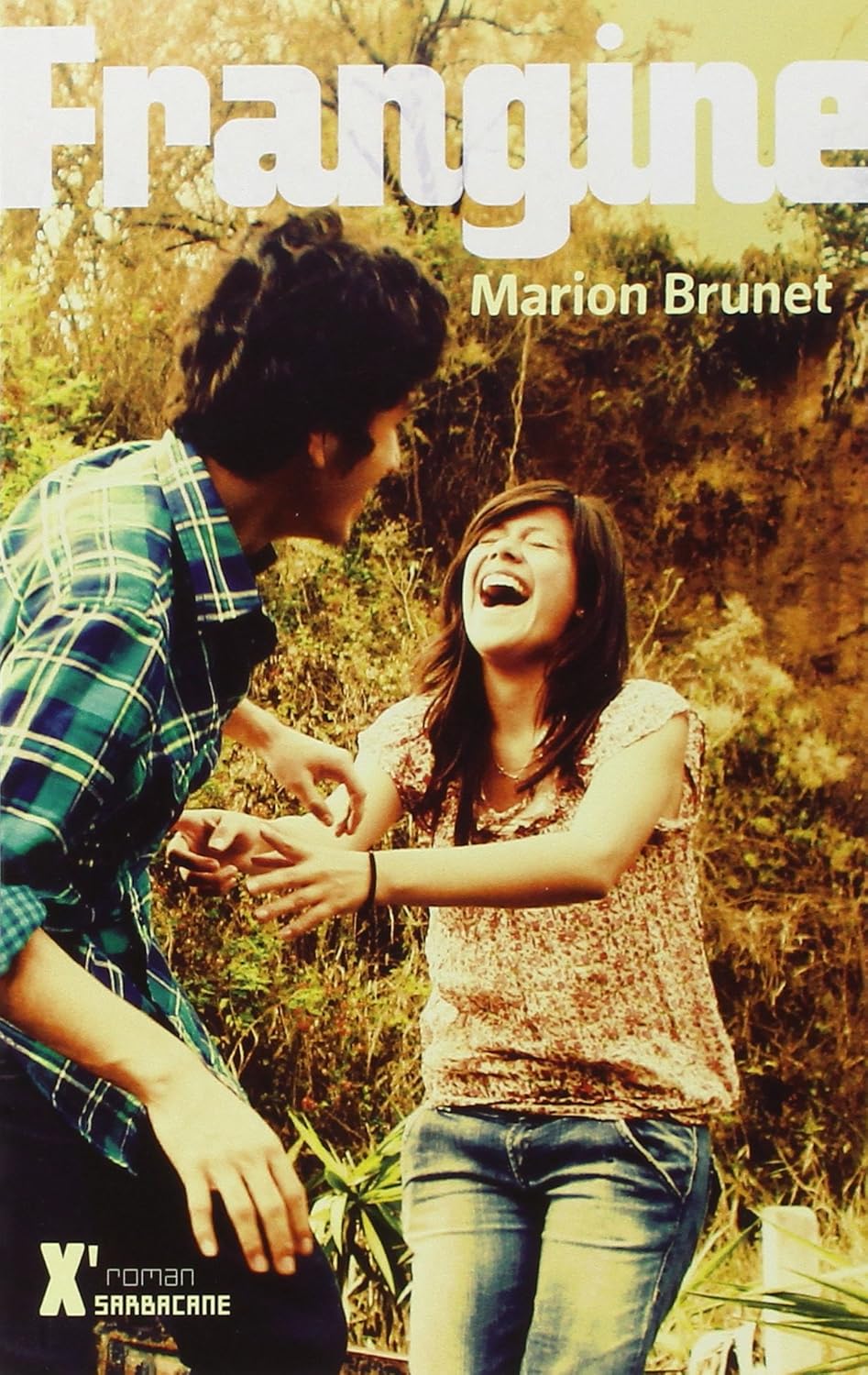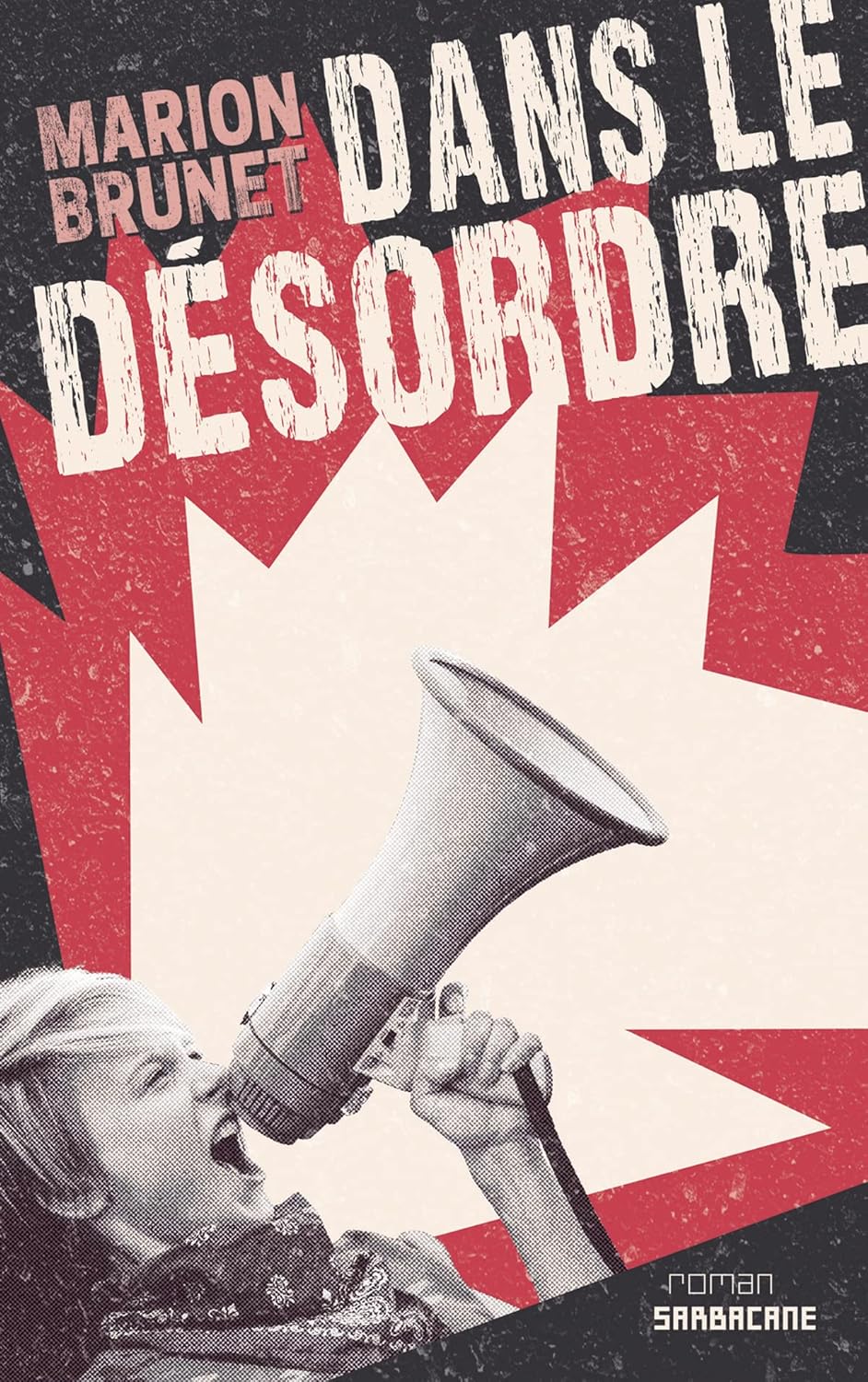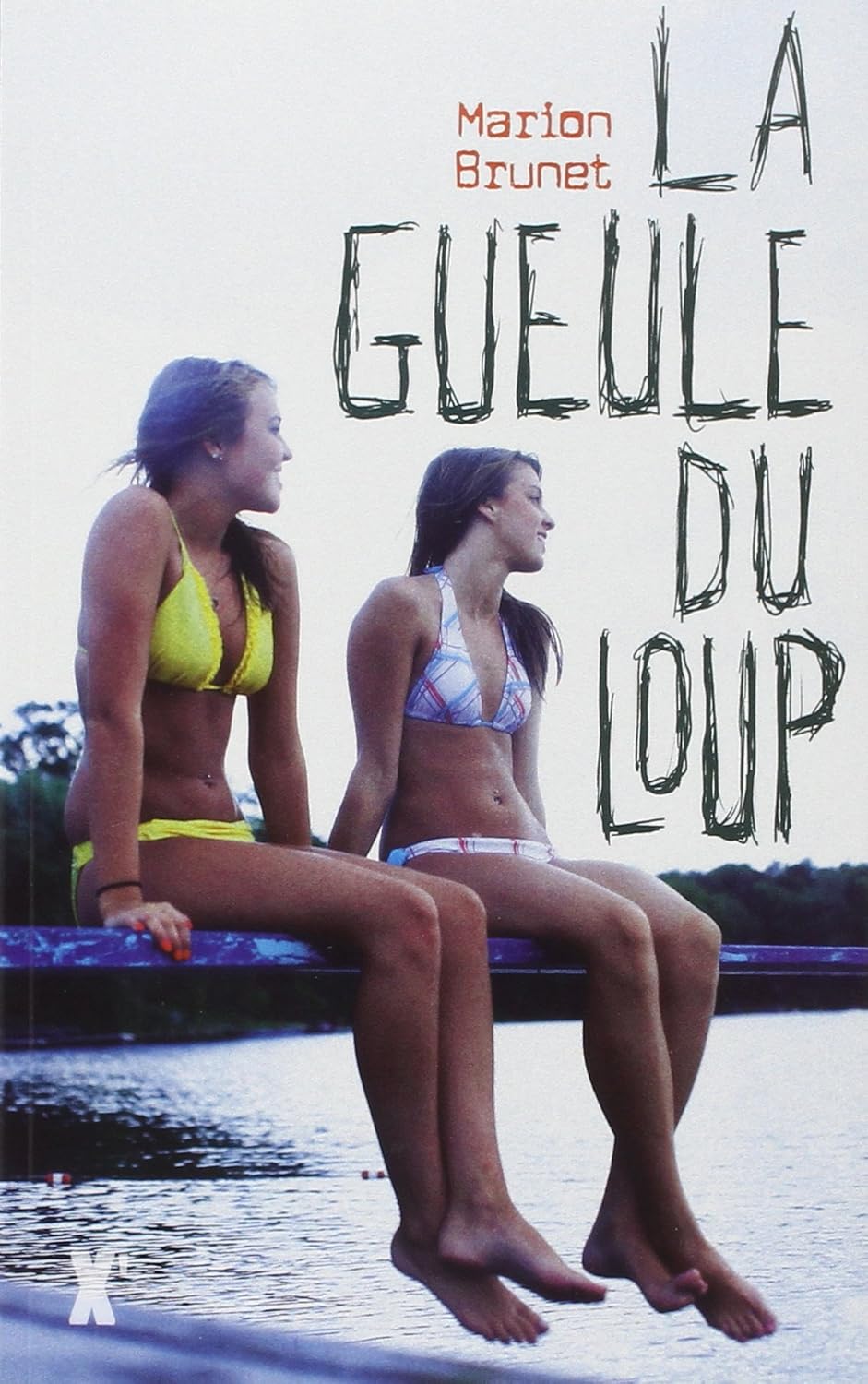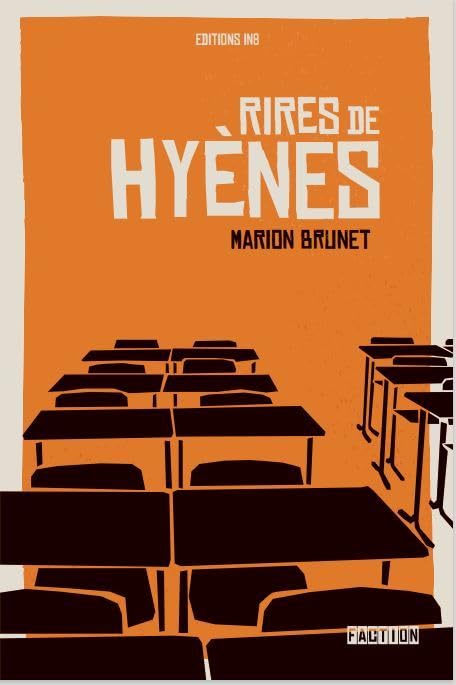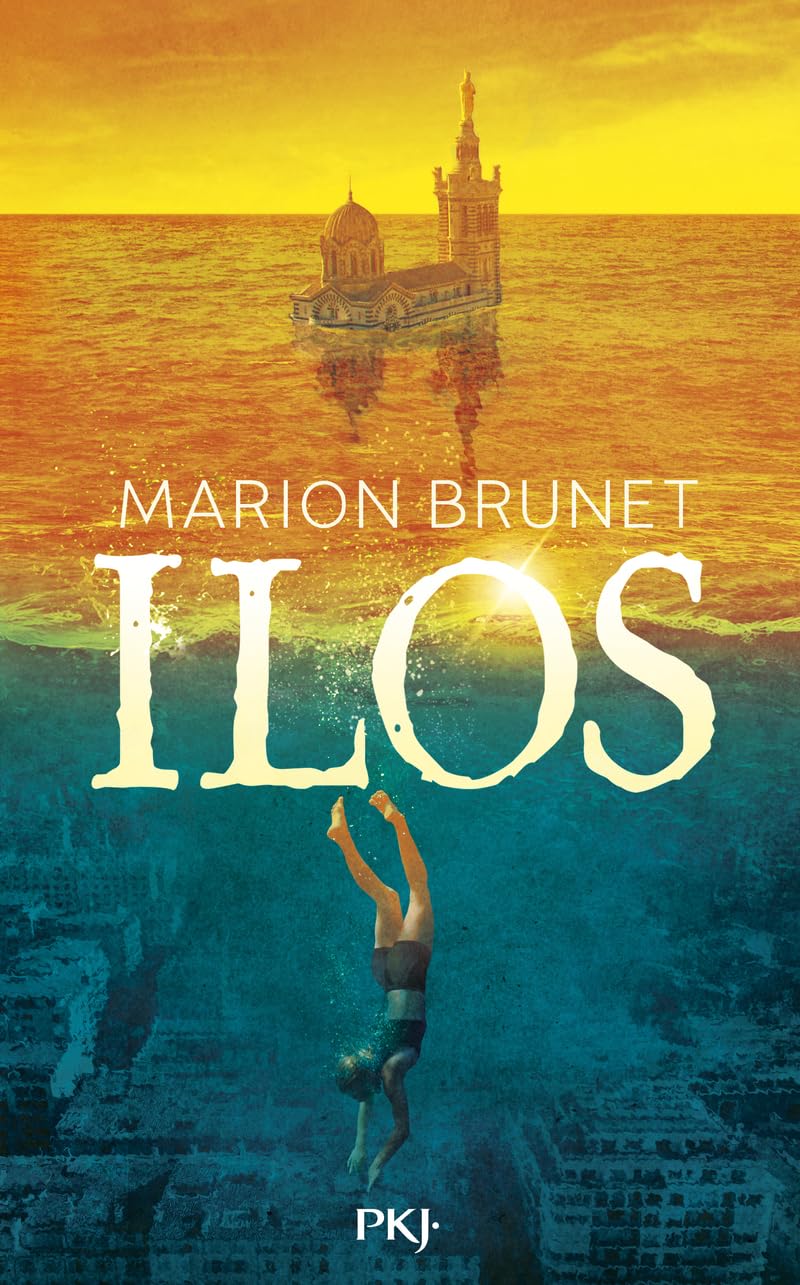Shimmering and crystal-clear prose
Marion Brunet is a French author whose first novel, "Frangine" (Sister), was published in 2013. In her books, Brunet spotlights burning social issues and draws insightful portraits of vulnerable groups and young people in revolt. She is timely in her choice of topics, timeless in her linkages to folklore and myth.
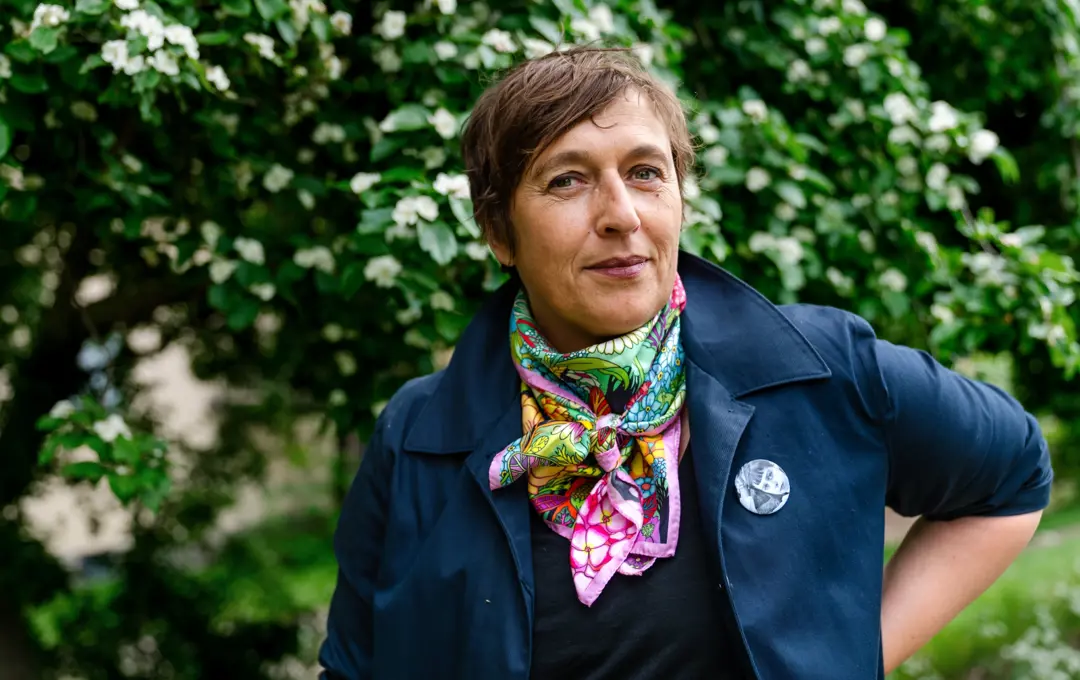 Photo: Maja Brand
Photo: Maja BrandQuick facts
The jury’s motivation
Marion Brunet’s books take place in a fiercely pulsating present with climate crisis and social vulnerability as recurring themes. In shimmering and crystal-clear prose, young people are portrayed in revolt against a corrupt society. The dark and violent parts of our world are explored in Brunet’s timely narratives, which are made timeless by their links to myth and folklore. And counterforces are found in friendship, solidarity, and the beauty of nature.
Marion Brunet was born in 1976 and resides in Marseille. Her first novel, Frangine (Sister), was published in 2013. In her writing, she moves freely among various genres, from dystopia to thriller-tinged tales to stories with elements of fantasy and adventure.
Marion Brunet’s books take up themes of social vulnerability, violence, and the kind of anxiety about the future that affects young people most of all. She spotlights burning social issues and draws insightful portraits of vulnerable groups and young people in revolt against the regular patterns of life in an increasingly materialistic and threatening social climate.
The award ceremony will take place on June 9, 2025, at the Concert Hall in Stockholm.
The phone call from the Jury
Listen to the phone call from jury chair Boel Westin to Marion Brunet.
Multifaceted and boundary-crossing
This text is written by Lena Kåreland and Katarina Eriksson Barajas.
Young people in life-changing situations or crises where everything comes to a head often stand at the centre of Marion Brunet’s novels. Brunet spotlights burning social issues and draws insightful portraits of vulnerable groups and young people in revolt against the regular patterns of life in an increasingly materialistic and threatening social climate.
Brunet is an uncompromising author who has received multiple awards. Her body of work is rich and multifaceted and in many ways boundary-crossing. She herself has said that she tries to guard against dividing literature into too-narrow categories. For Marion Brunet, therefore, no essential difference exists between young adult and adult literature. She moves freely among various genres, from dystopia to thriller-tinged tales to stories with elements of fantasy and adventure, all executed in characteristically stylish prose and a crystalline, sometimes biting realism where the smallest detail carries significance.
Marion Brunet was born in 1976 and resides in Marseille. Her first novel, Frangine (Sister), was published in 2013. It tells the story of two siblings, a brother and a sister, growing up with two mothers who became parents with the help of IVF. Frangine shines a spotlight on a homophobia that primarily impacts the daughter in the family. Brunet has since published some fifteen books, most for young adults but including some adult novels and books for younger readers. Her most recent books are the second part of the trilogy Ilos and the novel Nos armes, both published in 2024.
Brunet’s books take up themes of social vulnerability, violence, and the kind of anxiety about the future that affects young people most of all. Despite the intensity of her authorial voice, she can also be quiet, and she is never sentimental or strident. Tension is skilfully built up and effectively combined with a reflective and circumspect narrative stance that intensifies the darknesses she describes. Interleaved into her texts, with no fuss but with great sensitivity, we find the fight against prejudice and the desire for change, be it for gay people, prostitutes, climate refugees, or victims of racism.
Even minor characters step forward to play important roles. Age boundaries are crossed, and usually the collective – the group, the school class, the family, the romantic couple, the juvenile gang – is made more important than the individual. For example, Dans le désordre (In disarray) portrays seven young people who move in together and find themselves united in their desire for a better world. They are idealists who do not want to live by their parents’ norms. The novel begins with a protest that becomes the prelude to the characters’ friendship, and it also features an intensely narrated romance.
Brunet’s settings vary, but most of her books take place in the present day in French environments. An exception is Sans foi ni loi (Lawless), which is set in the Wild West and might be described as a boy’s coming-of-age story. The novel La gueule du loup (The wolf’s mouth) unfolds on Madagascar. Two French girls with quite opposite personalities have travelled to the island looking for new experiences and a life of leisure by the beautiful beaches. The girls have just graduated from high school; they want to enjoy their newfound freedom and they are open to anything. What they find is far more than a culture clash—it is a whole new understanding of how life can look. Their discovery of the dark side of tourism is a shock. A frightening trip into the jungle does more than educate them about a new environment and colonial abuses of power. It becomes a rite of passage that gives both girls greater insight into themselves.
Place descriptions often convey meaning in Brunet’s texts. With delicate brush strokes and bright, warm colours, she paints environments that stand in restful contrast to her dark plots. For example, in L´été circulaire (published in English as Summer of Reckoning), an adult novel about teen pregnancy, readers are pulled into a fateful drama that unfolds in a sleepy, unexciting, and uneventful village in Provence under a hot southern sun. As the French title intimates, life is an endless cycle. Everything repeats. The determinism of life is hard to sway.
Each of Brunet’s novels presents a new world with new sets of circumstances. What does not change is Brunet’s ability to surprise and to offer unexpected insight into complex situations. Nearly all her books feature drastic, dramatic scenes that can be challenging enough to take our breath away. That is true of Des rires de hyènes (The hyenas’ laugh), a novella that begins with Julien, a new high school teacher, meeting his students at the start of the fall term. Julien is excited and eager to share his love of literature. But things do not turn out the way he thought. One of the students starts a systematic and comprehensive campaign to bully the new teacher, and the brutal resolution is open to multiple interpretations.
Plein gris (Heading for the Storm), a young adult novel which has drawn particular interest in France, is a nigh on claustrophobic story about a handful of young people on a sailing tour from Brittany to Ireland. Water, the sea, and the raging elements are important foundations of this novel, whose very first sentences drop the reader into the middle of disaster. The sailing trip, long envisioned and planned in minute detail, turns into a nightmare. The group’s charismatic leader is found dead, and the urgent question of what really happened to him, in combination with a looming storm, motors the plot. The purely concrete stress and physical adversity begin to influence the group’s psychological dynamic. The constricted space of the boat must accommodate both strong feelings and smouldering suspicions, and as the storm rages, the young people must not only steer the sailboat but also keep command of the heightened atmosphere onboard. Relations among the survivors are highly charged and emotional control is stretched to the breaking point. Every other chapter is told in flashback, gradually revealing the background to the story. The remaining chapters are set in the present as the four young people wage an intensive battle for survival.
Brunet’s grand and impressive Ilos trilogy is a work of dystopian fiction that harks back to classical mythology but unfolds in the year 2052, when the climate crisis has peaked. Some communities in the Mediterranean, rendered uninhabitable by the heat, have quite simply vanished from the map. The story begins in Marseille, where eight tsunamis and the ever-rising sea levels have buried swathes of the city. At the centre of the action are Nolane and her brother, who go diving in the flooded luxury homes for valuables they can sell to survive in an inequitable and basically lawless society. It is a world without mercy, ruled by a ruthless mafioso known as the Commodore. In Ilos, Brunet works with stark contrasts between her characters. Each can be seen as a folkloric archetype, albeit with a unique history and background. As so often with Brunet, a group of young people lead the fight against social injustice. They develop a spirit of solidarity and of unity that, in spite of everything, imparts some hope for the future.
Marion Brunet often uses history as a springboard and her books stand in a natural dialogue with the French adventure novel. We can see similarities to both Victor Hugo and Alexander Dumas, where the power of good is pitted against the power of evil. At the same time, Brunet’s work bears strongly on the present day. She is timely in her choice of topics, timeless in her linkages to folklore and myth.
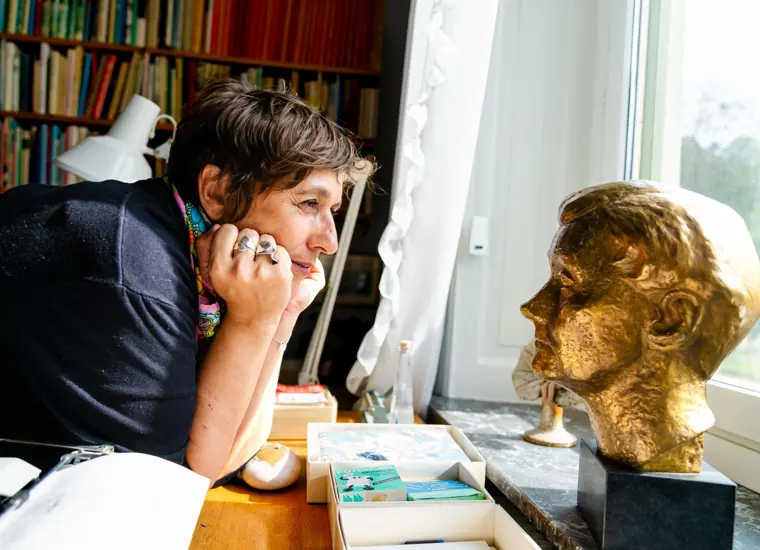
“We need to take children’s literature more seriously”
How does Maron Brunet succeed in writing about social problems without becoming propagandistic? What does her selection for the Astrid Lindgren Memorial Award mean to her, and how does she think children’s literature is treated in her native France?
Read the interviewWith delicate brush strokes and bright, warm colours, Marion Brunet paints environments that stand in restful contrast to her dark plots.

Discover our laureates
The Astrid Lindgren Memorial Award is awarded to authors, illustrators and narrators, but also to people or organizations that work to promote reading.
Find out more about the laureates
Children have the right to great stories
To lose yourself in a story is to find yourself in the grip of an irresistible power. A power that provokes thought, unlocks language and allows the imagination to roam free. The Astrid Lindgren Memorial Award was created in 2002 by the Swedish government to promote every child’s right to great stories.
Find out more about the award